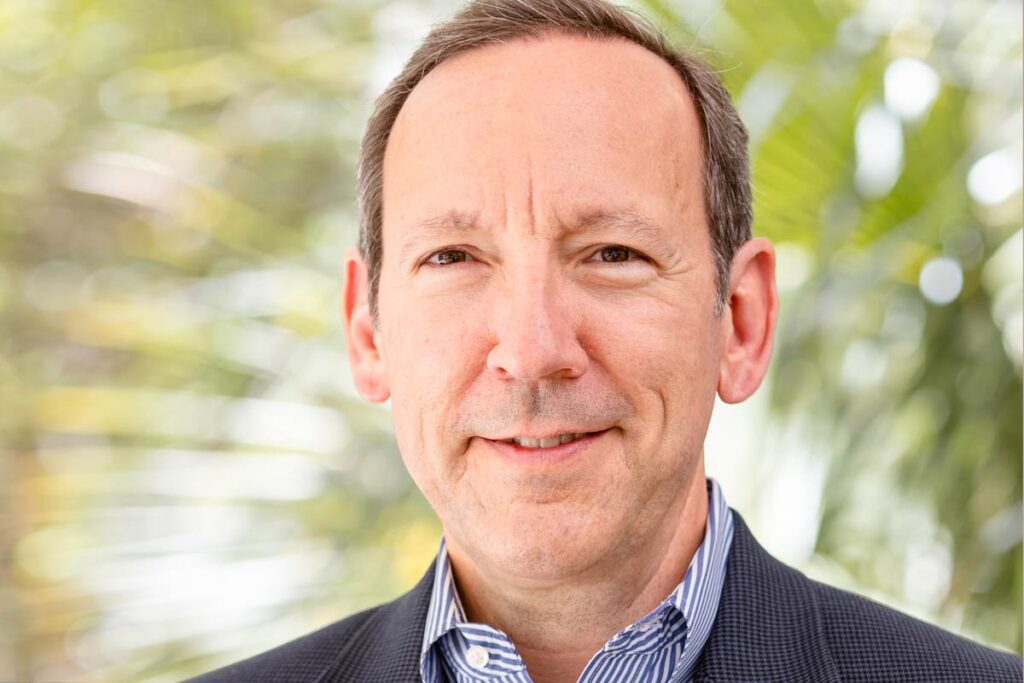No Time Like the Present: Learning Communities Takes Flight

For Lane Lewis, building faith-based community has always been at the forefront of his priorities. Lane and his wife, Johanna, had been members of Our Savior’s Lutheran Church in Naperville, Illinois, for twenty-seven years and now Trinity Lutheran in Greenville, South Carolina for the past two years, experiences that have been rich in a multitude of ways. In fact, it was a personal connection from Our Savior’s, Randy Schneider, who recruited Lewis to join the LSTC Foundation Board of Trustees in 2019.
“I really did think about [joining the Foundation Board] as an opportunity to give back to the larger Church,” Lewis says. Working with the Foundation Board offered opportunities to address the problems churches of many denominations are facing including declining enrollment and disengagement. “I wanted to potentially help reverse some of those trends and generate growth and giving for the Church as well,” Lewis says of his goals upon his appointment to the LSTC Foundation Board.
Once in place, Lewis was selected to Chair the Churchwide Relations Task Force on the LSTC Foundation Board, now colloquially known as the Learning Communities Task Force, a role he holds to this day. The task force proved, from the start, to be a locus of inspiration. Together with LSTC alums, other foundation trustees, and two ELCA bishops, Lewis quickly found himself at the helm of proposing a new way to help LSTC rethink community engagement, continuing Lutheran education, and the Lutheran formation process. The resultant project, which has now been piloted for two years, has come to be known as Learning Communities.
“It’s churchwide community engagement grounded in Lutheran theology that really creates an inspiring environment for members of different congregations to learn together, to fulfill these unsatisfied appetites for faith formation,” Lewis says. For the first year, Learning Communities, which is offered at no cost to participants, tested both in-person and virtual programming, and centered theological education programs in different geographic locations to build stronger relationships between LSTC and its constituent congregations.
Early reviews were overwhelmingly positive: parishioners enjoyed having the opportunity to engage with LSTC faculty, thought leaders and subject matter experts who they may not have had access to in the course of their regular activities. They also enjoyed the interactivity that Learning Communities programming provided. However, one element stuck out: participants in the virtual programs found incredible value in connecting with other, geographically disparate congregations. That finding led Lewis and LSTC Foundation Board leaders to pivot and construct future Learning Communities series as entirely virtual offerings that could be attended by anyone, via Zoom, with an interest in the subject matter at hand.
In the 2023-2024 academic year, Learning Communities at LSTC will offer three four-part series exploring topics of “Faith, Work, and Economics,” guided by Bishop emeritus Rev. Wayne N. Miller, “Theological Intersectionality for the 21st Century Church” led by LSTC Professor of Theology and Anthropology Dr. Linda E. Thomas, and “Liturgy and the Natural World,” directed by Rev. Dr. Benjamin M. Stewart, who serves as Distinguished Affiliate Faculty at LSTC.
Lewis and his team on the LSTC Foundation Board look forward to more success as the program unfolds. “In the last series we did in April, we had 410 people registered,” Lewis said. “We hope to move Learning Communities from a taskforce supported program to an institutionally embedded program,” Lewis says. “Because everyone at LSTC shares our vision and our passion for supporting the Church.”
For more information on Learning Communities at LSTC please visit lstc.edu/learningcommunities.